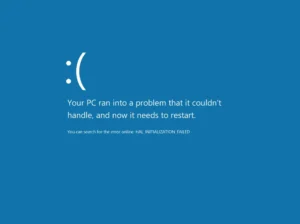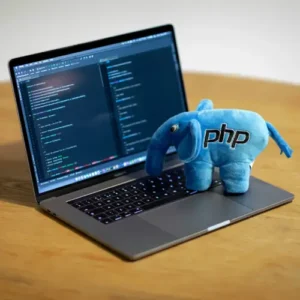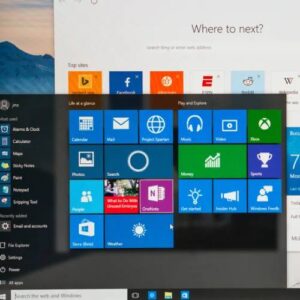In today’s fast-paced digital landscape, businesses rely heavily on IT infrastructure to maintain productivity, streamline operations, and deliver exceptional customer experiences. As a result, IT help desk ticketing systems have become a critical component of organizational success. These systems not only resolve technical issues but also serve as a bridge between IT teams and end-users. Over the years, innovations in IT help desk ticketing systems have transformed how businesses manage support requests, optimize workflows, and enhance user satisfaction. This article explores the latest advancements in IT help desk ticketing systems and their impact on modern businesses.
The Evolution of IT Help Desk Ticketing Systems
IT help desk ticketing systems have come a long way since their inception. Initially, these systems were rudimentary, often relying on manual processes, spreadsheets, or basic email tracking. However, as technology advanced, so did the capabilities of ticketing systems. Today, they are powered by artificial intelligence (AI), machine learning (ML), automation, and cloud computing, offering unparalleled efficiency and scalability.
The shift from traditional on-premise solutions to cloud-based platforms has been a game-changer. Cloud-based ticketing systems provide flexibility, real-time collaboration, and seamless integration with other business tools. Additionally, the rise of remote work has further accelerated the adoption of these systems, enabling IT teams to provide support from anywhere in the world.
Key Innovations in IT Help Desk Ticketing Systems
1. Artificial Intelligence and Machine Learning
AI and ML are at the forefront of innovation in IT help desk ticketing systems. These technologies enable systems to analyze vast amounts of data, predict potential issues, and provide proactive solutions. For example:
- Chatbots and Virtual Assistants: AI-powered chatbots can handle routine inquiries, such as password resets or software installations, without human intervention. This reduces the workload on IT staff and ensures faster response times.
- Predictive Analytics: ML algorithms analyze historical data to identify patterns and predict recurring issues. This allows IT teams to address problems before they escalate, minimizing downtime.
- Intelligent Ticket Routing: AI can automatically categorize and prioritize tickets based on urgency, complexity, and the expertise required. This ensures that critical issues are addressed promptly by the most qualified personnel.
2. Automation and Self-Service Portals
Automation has revolutionized IT help desk operations by streamlining repetitive tasks and reducing human error. Modern ticketing systems offer:
- Automated Ticket Creation: When a user submits a request, the system automatically generates a ticket, assigns it to the appropriate team, and sends a confirmation to the user.
- Self-Service Knowledge Bases: Many systems now include self-service portals where users can find answers to common questions, download resources, or troubleshoot issues independently. This reduces the volume of tickets and empowers users to resolve minor issues on their own.
- Workflow Automation: IT teams can create custom workflows to automate processes such as approvals, escalations, and notifications. This ensures consistency and efficiency across all support operations.
3. Omnichannel Support
With the proliferation of communication channels, users expect to receive support through their preferred platform, whether it’s email, chat, phone, or social media. Modern ticketing systems offer omnichannel support, allowing IT teams to manage requests from multiple channels within a single interface. This not only improves user satisfaction but also ensures that no request falls through the cracks.
4. Integration with Other Tools
Today’s IT help desk ticketing systems are designed to integrate seamlessly with other business tools, such as CRM software, project management platforms, and monitoring tools. This integration enables IT teams to access relevant information, track progress, and collaborate more effectively. For example:
- CRM Integration: By integrating with CRM systems, IT teams can access customer data and provide personalized support.
- Monitoring Tools: Integration with network monitoring tools allows IT teams to detect and resolve issues before they impact users.
5. Enhanced Reporting and Analytics
Data-driven decision-making is essential for optimizing IT support operations. Modern ticketing systems offer advanced reporting and analytics features, including:
- Real-Time Dashboards: IT managers can monitor key metrics, such as ticket volume, resolution times, and team performance, in real time.
- Custom Reports: Teams can generate custom reports to analyze trends, identify bottlenecks, and measure the effectiveness of their support strategies.
- User Feedback Analysis: Some systems include sentiment analysis tools to evaluate user feedback and identify areas for improvement.
6. Mobile Accessibility
As remote work becomes more prevalent, mobile accessibility has become a critical feature of IT help desk ticketing systems. Many platforms now offer mobile apps that allow IT staff to manage tickets, communicate with users, and access knowledge bases from their smartphones or tablets. This ensures that support teams can respond to issues promptly, regardless of their location.
7. Enhanced Security Features
With the increasing threat of cyberattacks, security has become a top priority for businesses. Modern ticketing systems incorporate robust security features, such as:
- Data Encryption: All data transmitted through the system is encrypted to protect sensitive information.
- Role-Based Access Control: Administrators can define user roles and permissions to ensure that only authorized personnel can access certain data or features.
- Audit Trails: Systems maintain detailed logs of all activities, enabling organizations to track changes and detect potential security breaches.
Benefits of Modern IT Help Desk Ticketing Systems
The innovations in IT help desk ticketing systems offer numerous benefits for businesses, including:
- Improved Efficiency: Automation and AI reduce manual workloads, enabling IT teams to focus on more complex tasks.
- Faster Resolution Times: Intelligent routing and predictive analytics ensure that issues are resolved quickly and proactively.
- Enhanced User Satisfaction: Omnichannel support and self-service options provide a seamless and personalized experience for users.
- Cost Savings: By reducing downtime and optimizing workflows, businesses can lower their operational costs.
- Scalability: Cloud-based systems can easily scale to accommodate growing businesses and evolving needs.
Future Trends in IT Help Desk Ticketing Systems
As technology continues to evolve, IT help desk ticketing systems will become even more sophisticated. Some emerging trends to watch include:
- AI-Driven Personalization: Systems will leverage AI to deliver highly personalized support experiences based on user behavior and preferences.
- Augmented Reality (AR) Support: AR tools could enable IT teams to provide remote assistance by overlaying instructions onto a user’s screen.
- Blockchain for Security: Blockchain technology may be used to enhance data security and transparency in ticketing systems.
- Voice-Activated Support: Voice assistants could allow users to submit tickets or access support resources using voice commands.
Conclusion
Innovations in IT help desk ticketing systems have transformed the way businesses manage support operations. By leveraging AI, automation, omnichannel support, and advanced analytics, these systems enable organizations to deliver faster, more efficient, and more personalized support. As technology continues to advance, IT help desk ticketing systems will play an increasingly vital role in driving business success. Investing in a modern ticketing system is no longer a luxury but a necessity for businesses looking to stay competitive in the digital age.
Boost Your Business with LadiTech’s IT Help Desk Services!
At LadiTech, we understand that every second counts when it comes to IT issues. Our IT Help Desk provides 24/7 expert support, ensuring your business runs smoothly without disruptions. Whether it’s troubleshooting technical problems, resolving software glitches, or managing network security, our team is here to help—fast and efficiently!
With LadiTech, you get:
✅ Quick response times
✅ Certified IT professionals
✅ Cost-effective solutions
✅ Seamless remote and on-site support
Let us handle your IT challenges so you can focus on growing your business. Contact LadiTech today!










